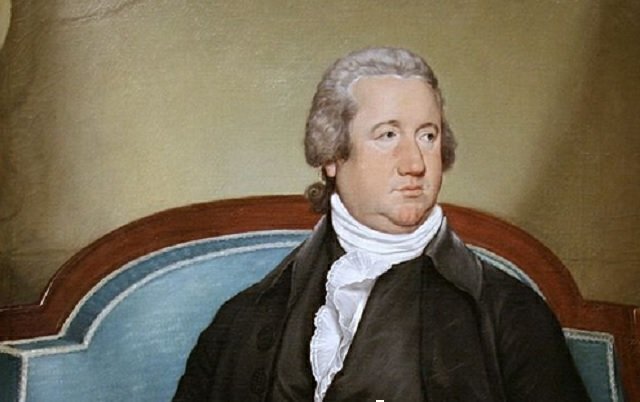For centuries, stories have persisted about Congress almost approving German as our official language, except for one vote by its German-speaking leader. So how close is that story to the truth?
 On April 1, 1789, Frederick Muhlenberg was chosen as the first speaker of the House of Representatives. Muhlenberg’s father, Henry, was born in Germany, and he played an important role in the establishment of the Lutheran Church in the Colonies.
On April 1, 1789, Frederick Muhlenberg was chosen as the first speaker of the House of Representatives. Muhlenberg’s father, Henry, was born in Germany, and he played an important role in the establishment of the Lutheran Church in the Colonies.
Young Frederick was born outside of Philadelphia before serving as a minister and pastor in the colonies. He began his life of public service as a member of the Continental Congress. He also served as the Speaker of Pennsylvania’s House and led the Pennsylvania delegation that ratified the Constitution.
Muhlenberg then emerged as the preferred candidate for the Speaker’s role as the House neared a quorum for its first meeting in 1789.
During two terms as Speaker, Muhlenberg was the first person to sign the Bill of Rights, but his tie-breaking vote on the controversial Jay Treaty proved to be his undoing. Muhlenberg lost a re-election bid after that, and his national political career was over.
But his “legendary” role in preventing the adoption of German as the United States’ official language gained steam over the years.
The late German academic Willi Paul Adams published a study in 1990 that included an explanation of why so many people believed Muhlenberg acted to block a congressional resolution that would have made German the national language.
“Fascinating for Germans, this imagined decision has been popularized by German authors of travel literature since the 1840s and propagated by some American teachers of German and German teachers of English who are not entirely secure in their American history,” Adams wrote.
“In reality, this presumed proposition was never brought to the congressional floor and a vote was never taken,” he added.
Dennis Baron, professor of English and linguistics at the University of Illinois at Urbana-Champaign, also tells a similar tale in an article he penned for PBS’s website, after the Muhlenberg legend popped up in an Ann Landers column.
“On January 13, 1795, Congress considered a proposal, not to give German any official status, but merely to print the federal laws in German as well as English. During the debate, a motion to adjourn failed by one vote. The final vote rejecting the translation of federal laws, which took place one month later, is not recorded,” Baron said, who cites two contemporary sources for the account.
Baron traces the legend to an 1847 book by Franz Löher called History and Achievements of the Germans in America, which Baron says “presents a garbled though frequently cited account of what is supposed to have happened.”
Adams also pointed out that just 9 percent of the early United States was German-speaking, and that the vast English-speaking majority would have had a few problems with the concept of an official language.
“Colonial speakers of English fought only for their political independence. They had no stomach for an anti-English language and cultural revolution,” Adams said.
Muhlenberg’s role in passing the Jay Treaty with Great Britain was much more controversial than his alleged involvement in rejecting the German language.
The Senate had passed the treaty by a mandatory two-thirds majority, but the House was needed to fund its provisions. Muhlenberg sided with the Federalists against an opposition led by James Madison.
In 1796, he cast the key vote in recommending the House fund the treaty. According to several accounts, Muhlenberg was stabbed by his brother-in-law several days later for that vote. He survived that attack and later died in Lancaster, Pennsylvania, in 1801.
Scott Bomboy is the editor in chief of the National Constitution Center.







